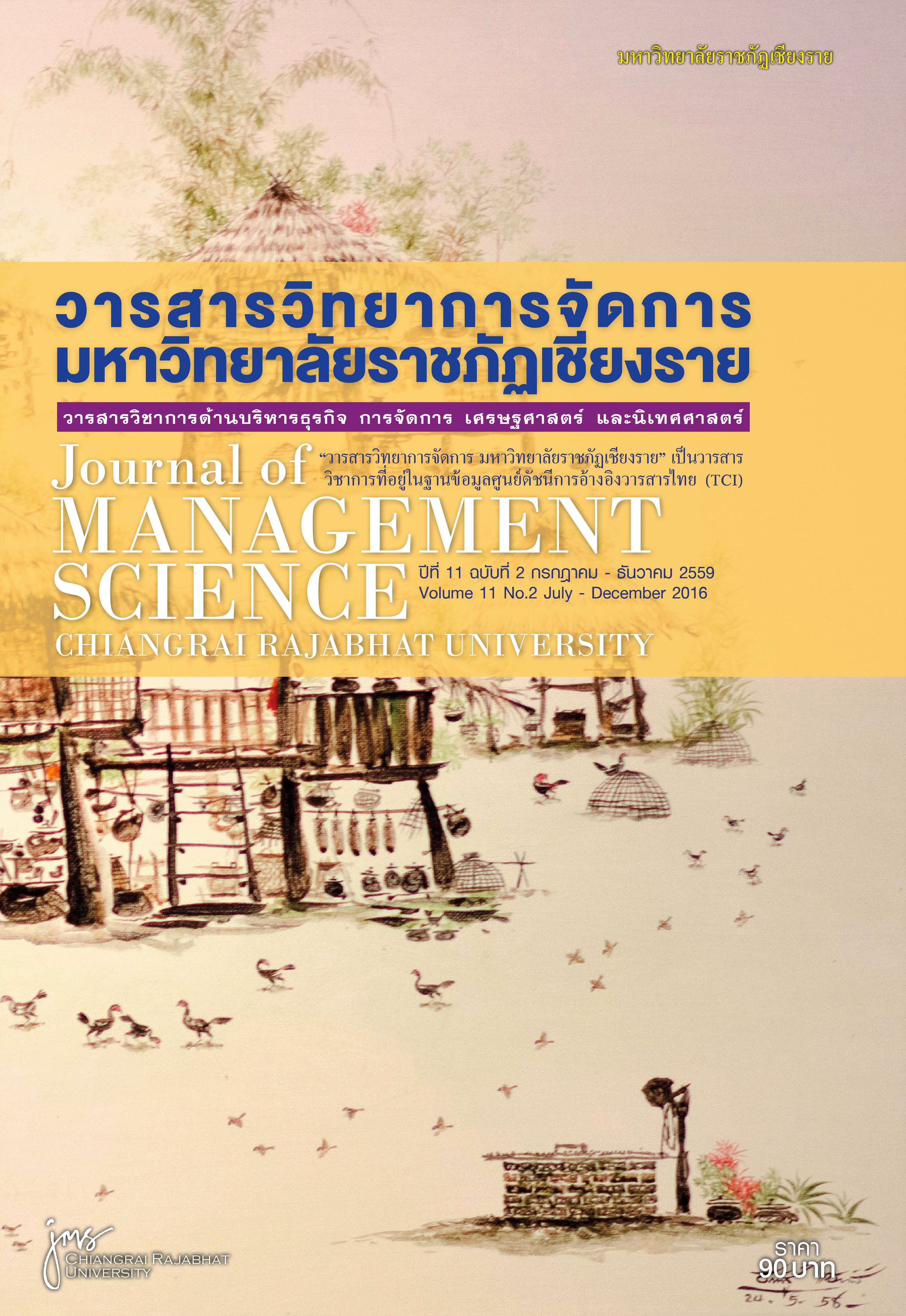Service on Cultural Difference in Foreigner’s Body Language
Main Article Content
Abstract
Nowadays, the competition, the services are developing rapidly. In the social structure Growth sectors Allowing customers the power to negotiate better. The flow of culture so easily happen. We will find an environment that consists of many, many more languages almost inevitable. Service providers will need to learn about the different cultures as well, which is part of the key factors affecting customer satisfaction. The behavior of some of the individual may have different interpretations, some cultures use the same mannerisms, yet meaningful difference. Sometimes in the same manner, each different cultures use to communicate. Sometimes the same manner, but are used for different functions. Or may be used to convey the same manner, but with the recognition that different expression levels. Some movements are different levels. The same manner and for the purposes of the same culture may change over time and through a deep relationship. And limitations in communication with people of other cultures and provide value to each culture fully expressed differently. Therefore, the study of cultural differences is a key factor driving the industry. Management must recognize that in various cultures. By understanding their culture and learn about the culture of others to meet their clients internationally. And to keep existing customers in the long term. Reduce conflicts and business development services to become a global player as well.
Article Details
Views and opinions expressed in the journal do not necessarily reflect those of the editors.
References
จิตตินันท์ นันทไพบูลย์. (2551). จิตวิทยาการบริการ. กรุงเทพฯ: ซีเอ็ดยูเคชั่น.
พรรณปพร จันทร์ฉาย. (2556). เอกสารประกอบการสอนรายวิชา การบริหารวัฒนธรรมข้ามชาติ. โรงเรียนการท่องเที่ยวและการบริการ มหาวิทยาลัยราชภัฏสวนดุสิต.
เมตตา วิวัฒนากูล . (2548). การสื่อสารต่างวัฒนธรรม. (พิมพ์ครั้งที่1). กรุงเทพฯ: บริษัท แอคทีฟพริ้นท์ จำกัด.
วรรจณา ภูพดี . (2554). วัฒนธรรมกับพฤติกรรมผู้บริโภค.แหล่งที่มา www.slideshare.netสืบค้นเมื่อวันที่ 10 ม.ค.2558
วีรพงษ์ เฉลิมจิระรัตน์. (2543). คุณภาพในงานบริการ 1.กรุงเทพฯ: สมาคมส่งเสริมเทคโนโลยี(ไทย-ญี่ปุ่น)
ศุภลักษณ์ อัครางกูล. (2547). พฤติกรรมนักท่องเที่ยว. กรุงเทพฯ: หจก. โรงพิมพ์คลังนานาวิทยาขอนแก่น.
สุรางค์ จันทวานิช,(2550). บทสรุปโครงการวิจัยพหุลักษณ์ในสังคมไทย. แหล่งที่มาwww.academia.eduสืบค้นเมื่อวันที่ 6 ก.พ.2558
Cullen, J.B. and K.P. Parboteeah. 2008. Multinational Management: A Strategic Approach. South Western Publisher, USA.
Cavusgil, T., G. Knight and J. Riesenberger. 2008. International Business: Strategy, Management, and the New Realities. Prentice Publisher, New Jersey.
Dyne, L.; Ang, S.; & Livermore, D. (2009). Cultural Intelligence: A Pathway for Leading in a Rapidly Globalizing World. Leadership across differences: Cases and perspective. San Francisco.
Hofstede, G. 1984. Culture’s Consequences: International Differences in Work-related Values. Sage Publication Inc., London.
Verghese, T; & D’Netto, B. (2011). Cultural Intelligence and Openness: Essential Elements of Effective Global Leadership.


